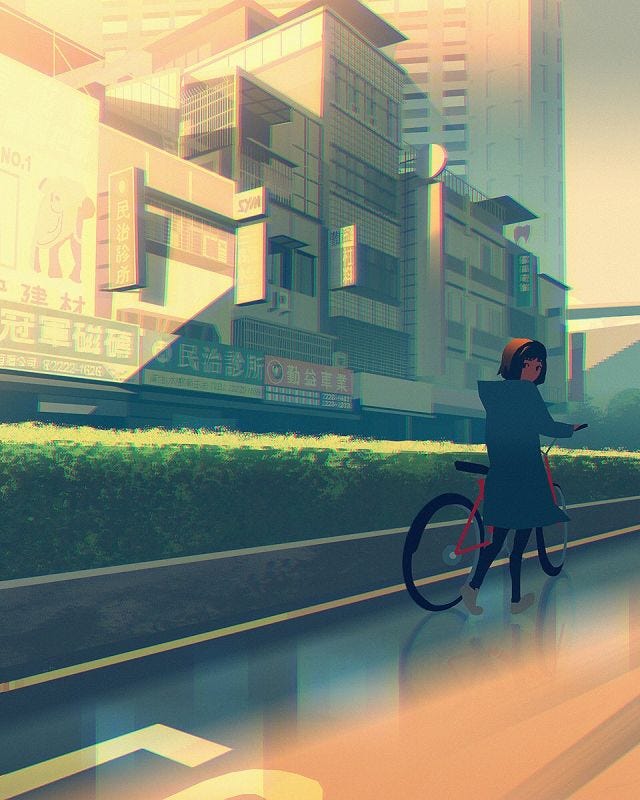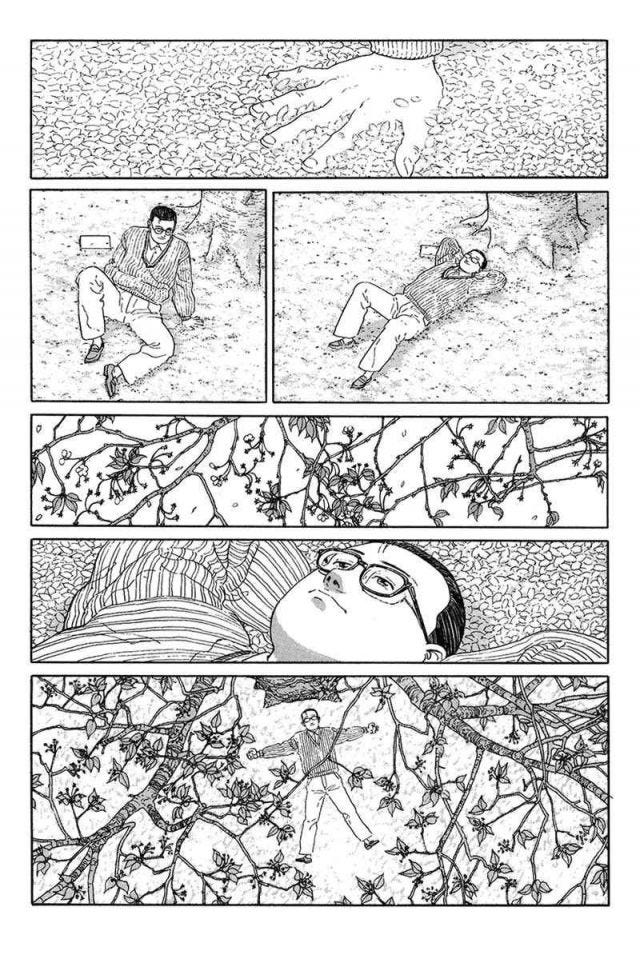017: Walking into 2020
Hoorah to the New Year! 2020 does feel like we're finally in the thick of the new century, not like the 00s and 10s, where no one could agree on what to call the decade. It's the 20s. No ambiguity. It's the future.

After the Downpour - Kat Tsai
It's been a while since my last update. I've been heads down working on my short fiction: writing new stories, and revising old ones. I'm hoping to send this newsletter out more often by worrying less about editing, which means there will be more typos and roundabout thoughts. It'll be a worthy tradeoff.
I'm happy to share that I've sold a story to Uncanny Magazine, a publication I've long admired. They consistently publish fiction that pushes genre into new places, and I'm humbled to be next to some big names. The story is called IN THE SPACE OF TWELVE MINUTES, and it's about a long distance relationship between a man on Earth and his astronaut wife on Mars, set in a post-USA world where China leads the space race. Oh, there's also avatars and the concept of eventual consistency for machine personalities. The story comes out sometime this year, and I can't wait to share it with you.
My story The Scrolls of Tian Tan also got nominated for the Pushcart Prize. A long shot to win, but I'm happy for the recognition.
* * *
Because of Hollywood, western story structure has subsumed most of the media the world watches. Generally speaking, this is the Hero's Journey. Even if you're not familiar with it, you know it. Hero leaves their world for a dangerous one, slays the dragon, and comes back changed. At the center is conflict. Mostly violent. Once you study it, you see it everywhere.
These hidden structures shape our expectations, and also our sense for what's possible. Recently, I've been intrigued by kishōtenketsu, a story structure born in the east. Instead of direct conflict at the center, it's all about a twist, and a conclusion that doesn't have to follow a straight line.
Here is an example from the Mythic Scribes blog:
In act one we see the fisherman in his boat out to sea. He’s sitting around fishing and waiting for a catch. It’s a long day and he hasn’t had much of a catch.
In the second act the fisherman decides it’s time for him to return home. It’s late and he longs to be reunited with his wife and children. He loves the sea, but he loves his family more.
The third act is about a woman hiding in the forest with two crying children. She’s the fisherman’s wife, and she’s hiding because their village got attacked by brigands.
The fourth act is about how the fisherman reunites with his family in the ruins of the burned-down village. Then they all set off in his boat to find another village.
Notice how we don't have conflict that directly resolves the initial complication. If this were in a western structure, we'd expect the third act to somehow resolve the fact that he didn't catch any fish. Perhaps he returns with a new strategy the next day. Or he finds out people have polluted the waters and he brings them to justice. And at the end, he resolves this tension.
Instead, we get a third act which comes out of nowhere. We weren't even introduced to his wife! We may not even know it's her at first.
Structures like this breaks us out of a (possibly) stale mode of thinking. The Hero's Journey goes beyond fiction and seeps into all parts of life: from startup pitches to how we sum up a hard day to our spouse. Could a different fictional structure change the power structures of the real world?
In this vein, I've been enjoying reading the manga The Walking Man, which is, as you guessed, all about a man that walks across Japan. It's a salve for conflict driven narratives. The man walks. He finds objects. Pets a dog. There are complications. But he doesn't wind himself into knots trying to fix them. Sometimes they fix themselves. Sometimes they don't. Unexpected things happen.
He finds an old man fishing in a shallow stream. "If possible, I hope none will bite," the old man says. "It's better if I don't catch anything. I rushed around enough in my life…so that now it's time to take life easily, slowly…it's wonderful, isn't it?"
Then he walks again, taking in the little moments in life.
Reading it is meditative.

◉
I recently made a call out on Twitter for folks in the Bay Area who work in tech and write fiction that would like to meet up. I got a lot more interest than expected (over 30 folks).
So, next week, the first Technically Fiction dinner will convene in SF. The plan is to meet and talk about our work. The craft of fiction is an alien concept in many tech circles (and yet, startup founders would benefit from studying the craft, as pitching the future has similarities with speculative fiction).
I haven't done much community building work in a while, so we'll see where this goes. If you're interested in being involved, let me know!
◉
I'm currently working on a short story that deals directly with climate change—a first for me. It's got robots, AIs, and climate denialism. If you're curious and want to give feedback on my latest draft, let me know and I'll send it to you.
◉

Interesting things I've come across:
One way to stop kids from abusing robots is to make it a turtle that retracts into its shell when scared.
Escape from Spiderhead by George Saunders is a dark short story about giving a person the power to make someone else feel the worst they could ever feel.
The world's first Classical Chinese Programming Language
On Earth We Are Briefly Gorgeous is a stunning coming-of-age novel from Ocean Vuong. He's a poet and it shows in his beautiful prose. This is the book to study if you want to understand how to communicate emotion in a structure that is less plot based.
The Last Black Man in San Francisco is a wonderful homage to San Francisco, specifically to the Victorian and the hidden, more quieter, parts of the city.
◉
I will leave you with this excerpt from the classic screenwriting book, Save the Cat:

Keep the press out!

